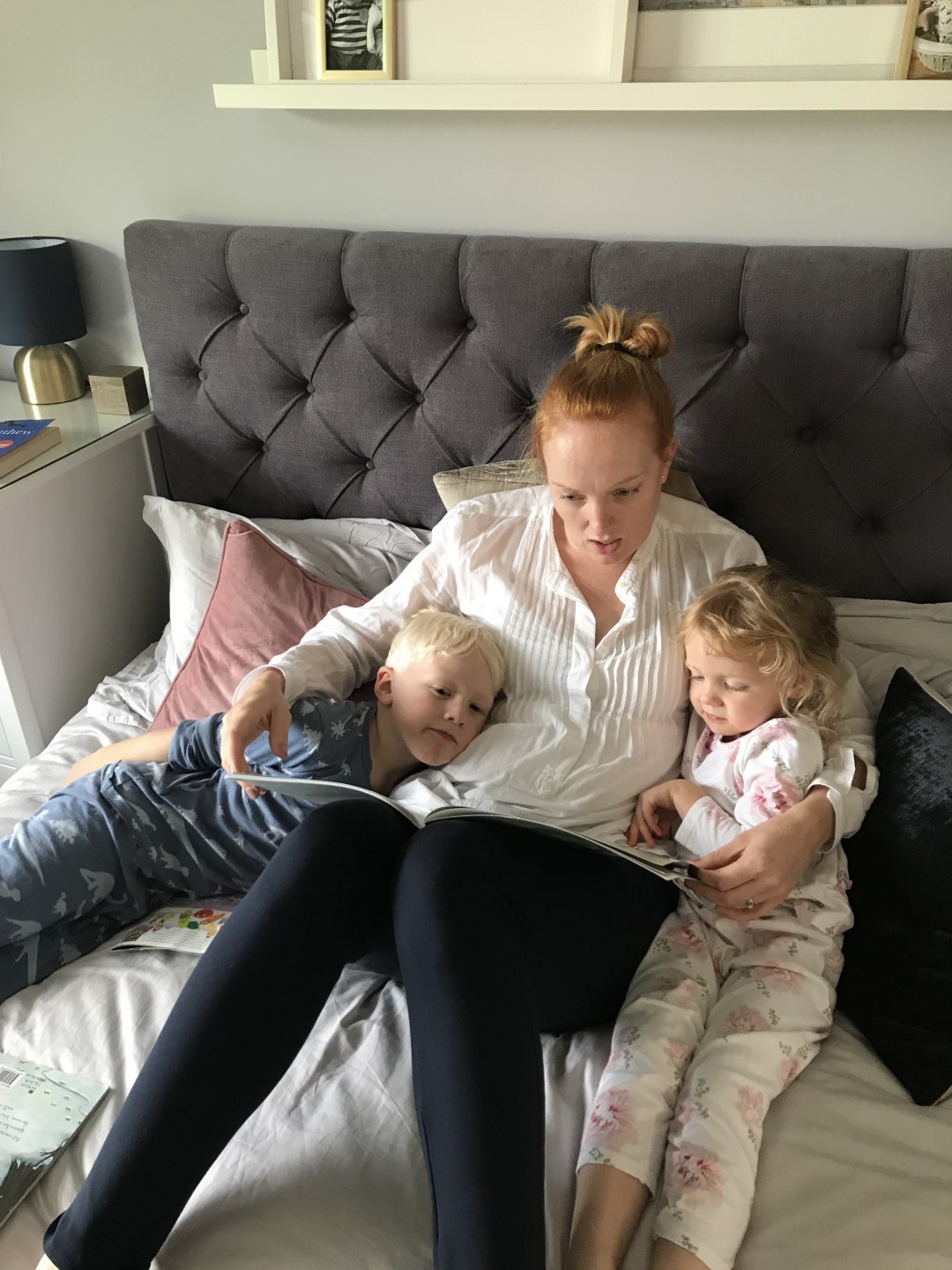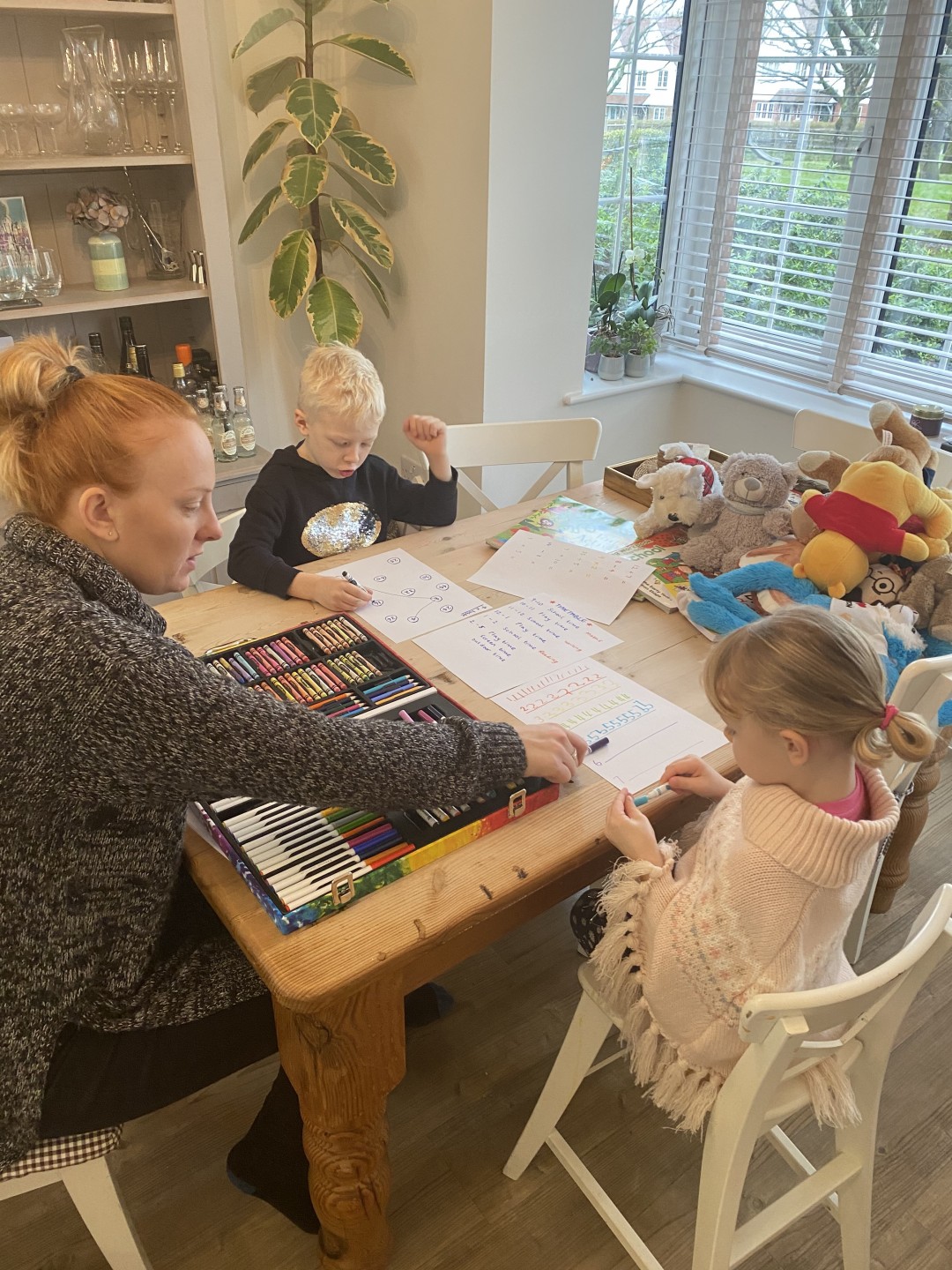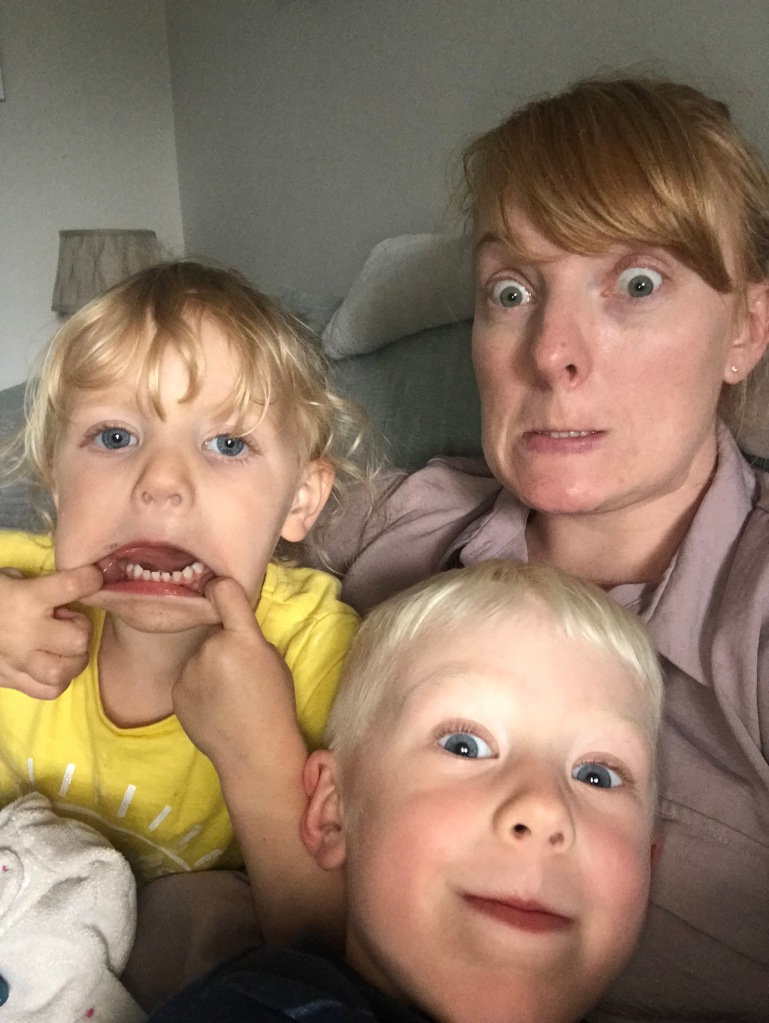GUEST BLOG: 5 Tips to Support Self-Regulation with Leslie-Ann Beary
I don’t know about you but after 6 weeks at home with my nose-mining, sticky mess making, snack requesting little darlings I am in need of some serious calm time. This much I know. For me that involves quiet, exercise, good food and chats with those I love most. But what about the kids? They are now heading back into or starting school. Big changes, transitions, new routines and exhaustion are all ahead. I don’t know about your home but to us here in casa FMM that all shouts WARNING WARNING BIG EMOTIONS INCOMING!
So when the lovely Leslie-Ann (@theautismfamilygodmother) offered to write me a guest blog with some of her best tips for supporting children with regulation I said a big YES PLEASE. I know this advice is definitely the sort of guidance our house is in need of and I hope very much it helps you out too - Daisy
5 Tips to Support Self-Regulation
I truly believe autism practice is just good practice and therefore these tips are for everyone!

A little bit about Leslie-Ann’s background
What’s up everyone? It’s Leslie-Ann here! I’m an Autism Specialist and Family Support Consultant, mum to two girls, and the proud founder of The Autism Family Godmother; support services for autistic individuals, families, organisations and schools.
My interest for the thrills and complexities of neuroscience started way back – which led me to obtaining a BA degree in Early Childhood Studies and a Masters in Special and Inclusive Education from the Institute of Education (IOE), University College London (UCL). My expertise lies in early childhood development and autism, with over 10 years’ experience of working within the autistic community, in various roles, within the private and public sector. I am also an ADOS-trained practitioner and thus collaborate with a network of professionals during the autism assessment diagnostic process.
I am passionate about providing knowledge and understanding on autism approaches and in turn offer services that are not only accessible but also neurodivergent affirming, for individuals and the teams around them.
So how can I help, not just parents with autistic children, but all parents?
So, let’s get into self-regulation. First off, full transparency whilst we know it reads ‘self’ regulation, there is a lot that needs to take place before children can regulate independently and confidently. Let’s face it, for us adults being able to understand our own emotions and feelings, fully, is hard and then on top of that knowing how to respond appropriately to every situation and/or person despite other things happening around us, some of which will be out of our control… yep, you guessed it, VERY hard.
With this in mind, we don’t always get it right and no wonder, to be able to emotionally regulate, consistently and suitably, is highly sophisticated stuff and it requires a certain level of development that doesn’t just happen overnight (sorry!). However, there are things we can do to support our children and kick start the journey of self-regulation resulting in them having a more enhanced sense of self, greater ability to employ social skills and so forth.
I am so excited to share my 5 top tips to support self-regulation with the FMM community! Please note, autism or not, I truly believe autism practice is just good practice and therefore these tips are for everyone!
TIP 1- Explore and discover emotions and feelings
This may seem like a ‘no brainer’ but oftentimes we assume or expect that our children know what or how they are feeling and that they have the needed awareness of emotional literacy and simply that is not always the case!
Things to consider:
- Tap into your child’s preferred communication style – spoken language, visual information and/or music etc.
- Start off by using the more familiar and popular emotions such as ‘happy’ or ‘sad’.
- Are they able to label the emotion?
- Can they communicate the feeling of the emotion? Such as feeling light when happy or heavy when sad.
- Think of your child’s developmental stage before adding more complex emotions i.e., confused, anxious or elated to the mix.
Note from Daisy: If you are looking for ways to help your children describe or talk about emotions we really love this book - In My Heart by Jo Witek

TIP 2 - Engage in a sensory circuit
There are physical things we can do which can support children to feel regulated and therefore ready whether that’s the optimal level for bedtime or to take on a task/activity such as homework or watching a film. This can be done via a sensory circuit which is split up into three stages.
The three categories of a sensory circuit are:
Alerting exercises/activities: to get the heart rate up!
- Playing a game of the floor is lava
- Playing a game of chase
- Scooting on a scooter up and down
Organising exercises/activities: to focus the mind!
- Playing with playdoh
- Threading pasta onto string
- Climbing the stairs
Grounding exercises/activities: to ground the body and slow the heart rate down!
- Colouring
- Listening to gentle music
- Focusing on your breath whilst blowing bubbles
Things to consider:
- Your child may need more or less time doing one of the 3 phases. For example, 10 minutes doing alerting, 25 minutes for organising and 5 minutes dedicated to grounding exercises/activities.
- Sensory circuits can involve things that you have at home for example using stairs for climbing or cushions for jumping
- Specific snacks can also be used for regulation purposes. For example, a crunchy apple is great for alerting, chewy raisins are brilliant for focusing and a strong-smelling mint is fab for feeling grounded.
- Some children may need to participate in some form of a sensory circuit multiple times a day.
TIP 3 - Model your emotions and feelings
Oftentimes to learn a skill we need to see the skill being practiced and this is especially true for children when it comes to self-regulation! It’s imperative for them to see people around them communicating on their emotions and feelings for it to be meaningful to them.
Things to consider:
- Begin to comment on situations whether it is something that has annoyed you or made you laugh etc. Try to exaggerate your emotion and feeling if possible!
- Communicate when things don’t go right! Maybe you got angry too quickly, owing to too much noise and your body feeling like it was going to explode – explain this, as hard as that is, it is normal and so important!

TIP 4 - Lean on resources
There are many resources that could support self-regulation, and more generally mental health, for children. It is important to bear in mind, with the internet and the ability to download information at the click of a button, it doesn’t need to cost much or anything for it to provide meaningful support. With this said, whilst books, films etc can provide a healthy insight there are other tools which can be used and found at home, such as a mirror to observe different emotions.
Daisy: or making your own fiddle toys out of balloons, which can be found on page 25 of my On The Go book!
Things to consider:
Not all resources are the right resources for your child and your family.
There are lots of respectable sources of information which can be found, but are not limited to, via the links below:

TIP 5 - Stick with it through trial and error
It goes without saying but things will go wrong, sometimes you won’t want to narrate how you are feeling, your child may not regulate the way you anticipated and that’s all okay! With such an emotive, sensitive and unique subject, pivoting and changing things up is vital however, keeping consistent is just as key too.
Things to consider:
- Observation is paramount!
- Space and time for processing and reflection is needed during every stage.
- Self-regulation is an evolving process.

If you would like some more information on neurodivergent affirming approaches and services, that I offer, please do come over and meet me via my Instagram @theautismfamilygodmother where you can slide right into my DMs!
And to end, please do remember whatever you are doing with your child and their, at times, BIG emotions and feelings is never wrong, and it isn’t about fixing – but it can be tricky and complex at the best of times so hopefully with more knowledge you’ll have more understanding and feel that more prepared and that’s where we can unlock change!
Thanks Leslie-Ann, that was such a useful read and there are some great ideas in there we will definitely be implementing in this house for the coming weeks! - Daisy















Marketing permission: I give my consent to Five Minute Mum to contact me via email using the information I have provided in this form for the purpose of news, updates and marketing.
What to expect: If you wish to withdraw your consent and stop hearing from us, simply click the unsubscribe link at the bottom of every email we send or contact us at [email protected]. We value and respect your personal data and privacy. To view our privacy policy, please click here. By submitting this form, you agree that we may process your information in accordance with these terms.